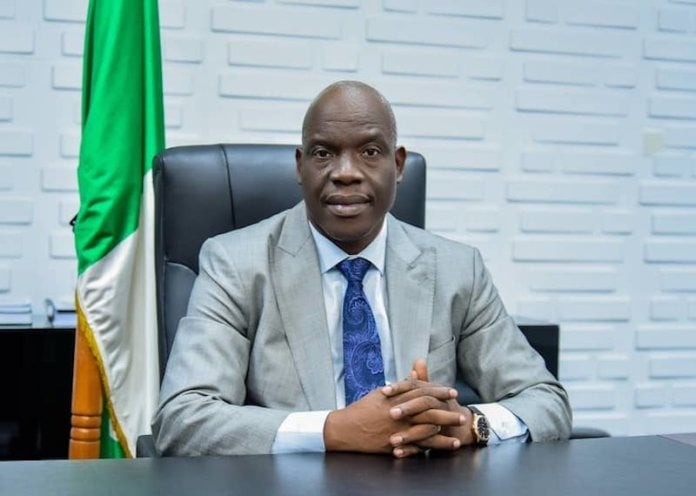The Nigerian oil and gas sector experienced a significant setback when the Nigerian Upstream Petroleum Regulatory Commission (NUPRC) revoked its prior approval for French energy giant TotalEnergies to divest its 10% stake in Shell Petroleum Development Company of Nigeria Limited (SPDC). This decision thwarted TotalEnergies’ strategic objective of offloading aging, environmentally challenging assets and reducing its substantial debt burden. The collapsed deal underscores the complex dynamics at play in Nigeria’s onshore oil industry, where international oil companies (IOCs) seek exit strategies while local players aspire to greater participation amidst financial, environmental, and regulatory obstacles.
TotalEnergies had initially agreed to sell its stake to Mauritius-based Chappal Energies in July 2024, receiving ministerial consent from the NUPRC in October of the same year, contingent upon stringent financial obligations. However, the deal ultimately fell apart due to both parties’ failure to meet these financial commitments, despite repeated extensions of the deadlines. The NUPRC confirmed that the failure to meet financial obligations, specifically relating to payments owed to the Nigerian government, prompted the deal’s cancellation. Industry sources revealed that Chappal Energies struggled to raise the necessary $860 million to finance the acquisition, while TotalEnergies also defaulted on regulatory fees and provisions for environmental rehabilitation and future liabilities associated with the assets.
The failure of the divestment leaves TotalEnergies grappling with its continued involvement in SPDC, a joint venture beset by persistent operational and environmental challenges, including oil spills, pipeline sabotage, and crude theft, which necessitate costly repairs and escalate environmental liabilities. These issues have significantly impacted the profitability of onshore operations in the Niger Delta region, motivating IOCs like TotalEnergies to seek an exit. SPDC’s ownership structure includes the Nigerian National Petroleum Company Limited (NNPC) with a majority 55% stake, Eni holding 5%, and TotalEnergies retaining its 10% following the failed divestment.
The stalled sale hampers TotalEnergies’ broader strategy to streamline its portfolio by shedding older, less profitable, and environmentally problematic assets, and to reduce its burgeoning $25.9 billion debt, which had seen an 89% increase by July 2025. The company’s CEO, Patrick Pouyanne, had identified the Nigerian divestment as a key component of a plan to generate $3.5 billion by the end of the year, aimed at lowering the company’s debt-to-equity ratio. This setback further complicates TotalEnergies’ financial maneuvering.
The situation reflects a broader trend in Nigeria’s oil industry, with several international players divesting their onshore assets in favor of local and regional companies. Shell finalized the sale of its 30% stake in SPDC in March 2025 for $2.4 billion, while ExxonMobil, Eni, and Equinor have also divested assets, prioritizing more lucrative offshore operations and global ventures. Chappal Energies, emerging as a potential buyer of distressed and mature assets, successfully acquired Equinor’s Nigerian operations in 2024 with backing from Mauritius Commercial Bank and Trafigura. However, in the case of the TotalEnergies deal, the lack of transparency regarding Chappal Energies’ financial backers raises questions about its capacity to handle such large transactions.
The NUPRC’s decision highlights a more stringent regulatory approach to asset transfers in Nigeria, with authorities emphasizing the financial and technical capabilities of acquiring companies. This is crucial for managing legacy environmental issues, community development commitments under the Petroleum Industry Act, and the substantial costs associated with decommissioning aging oil fields. The failed TotalEnergies deal serves as a clear signal that regulators will not condone asset transfers that leave Nigeria burdened with unresolved environmental and social liabilities. The NUPRC’s action is a deliberate effort to ensure that companies taking over these assets possess the resources and expertise to address existing problems and fulfill future obligations.
Despite the setback, TotalEnergies maintains a significant presence in Nigeria, holding interests in 15 oil-producing licenses and three gas field licenses, which contribute substantially to Nigeria LNG’s feedstock. The company now faces the challenge of managing its remaining onshore assets within a more demanding regulatory environment and increasing competition from local operators. Both TotalEnergies and Chappal Energies have declined to comment on the failed transaction, leaving the future of the SPDC stake uncertain. This situation underscores the intricacies and challenges present in Nigeria’s onshore oil sector, as the transition from international to local ownership proves more complex than anticipated.














